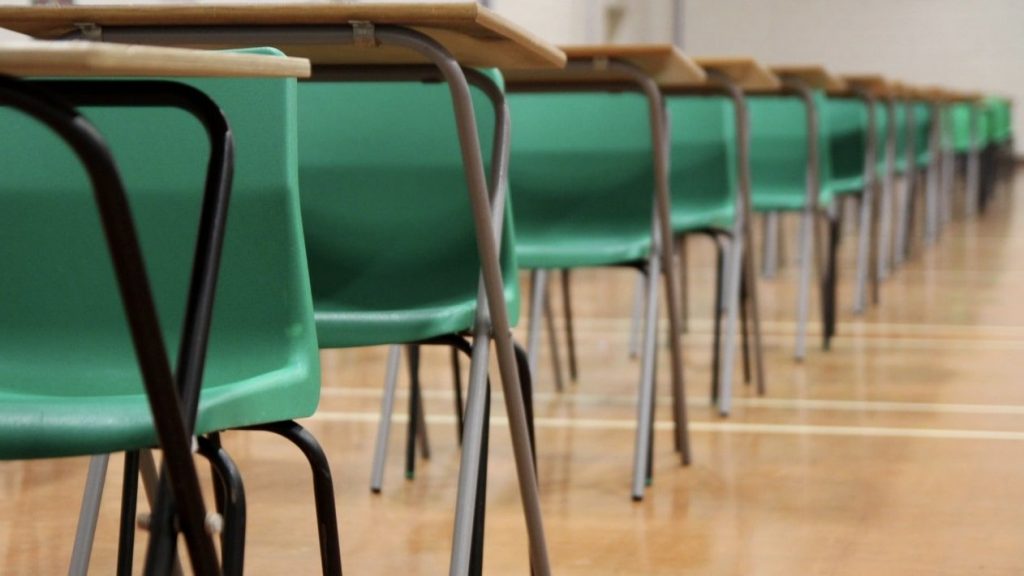The Metro: ‘Chronic absenteeism’ is hurting Michigan students. How can we solve it?
Sydney Waelchli July 30, 2024Lori Higgins, bureau chief for Chalkbeat Detroit, joined the show to discuss her ongoing reporting on the critical issue plaguing many students and families.

“Chronic absenteeism” is one of the biggest problems hurting students in Detroit and across the country, accounting for any students who miss at least 10% of school days.
Chalkbeat Detroit reports that Michigan had one of the worst rates of chronic absenteeism in the nation during the 2021-22 school year. While the rates improved the following school year, 30% of students still were chronically absent statewide. Those missed days not only make it hard for kids to succeed in the classroom, but also makes a teacher’s job a lot tougher.
So how should schools go about solving the problem, and what might lawmakers need to do to intervene? To help us answer these questions, Lori Higgins, bureau chief for Chalkbeat Detroit, joined The Metro.
Subscribe to The Metro on Apple Podcasts, Spotify, NPR.org or wherever you get your podcasts.
Higgins has covered Michigan education for nearly 25 years, and she describes chronic absenteeism as a critical issue across the state that has worsened as a result of the COVID-19 pandemic.
“You still have in Detroit 66% of the kids who are chronically absent. And a third of the kids across the state who are chronically absent, and the state numbers are well above what they were before the pandemic,” Higgins said. “Obviously, the pandemic had an impact on chronic absenteeism. And schools are still trying to recover from it.”
Through her reporting and research, Higgins found that poverty is a large factor of chronic absenteeism in Detroit. Students in poverty face many issues like stable housing, reliable transportation and safe neighborhoods that may cause them to miss school.
“We talked to a student who said one day it was really cold in the morning. He was waiting at the bus stop around 6 a.m. and the bus just drove right past him. And so what did he do? He went right back home. He said, ‘I’m not going to wait here another 45 minutes for another bus,” Higgins said. “And that’s just how easy it is for a kid to become chronically absent, is that split second decision that I’m not going to school today, because the transportation was not reliable, it didn’t pick me up on time.”
Higgins also spoke about a Detroit mother who prefers to walk her daughter the 5 to 6 blocks to school, and keeps her home on the days she is unable to accompany her because of safety concerns. Throughout the first half of the school year, the daughter had a total of 50 absences, she said.
“Schools cannot solve this issue alone, they cannot fix all the societal problems that are leading to chronic absenteeism,” Higgins said. “And that makes it really critical for schools and communities to be working together to find solutions to chronic absenteeism.”
Unfortunately, Higgins said, lawmakers haven’t done much to address the issue.
Use the media player above to hear the full interview with Higgins.
More headlines from The Metro on July 30, 2024:
- To date, in the 2023-2024 cycle, the Republican National Committee’s legal team has engaged in a total of 78 election-related lawsuits in 23 states — raising doubts about the integrity of our electoral system before ballots are even cast. Abby Vesoulis, a national politics reporter for Mother Jones, recently wrote about the RNC’s “bogus” lawsuits, calling them the GOP’s “secret weapon of 2024.” Vesoulis joined The Metro to discuss her reporting on the issue.
- July is National Minority Mental Health Awareness Month, and metro Detroit-based Hegira Health is hosting a virtual town hall on Wednesday featuring a panel discussion about how to address mental health care disparities. To talk more about the town hall and Minority Mental Health Month, Hegira Health Director of Development Dr. Andrea Rodgers joined the show.
Listen to The Metro weekdays from 11 a.m. to noon ET on 101.9 FM and streaming on-demand.
